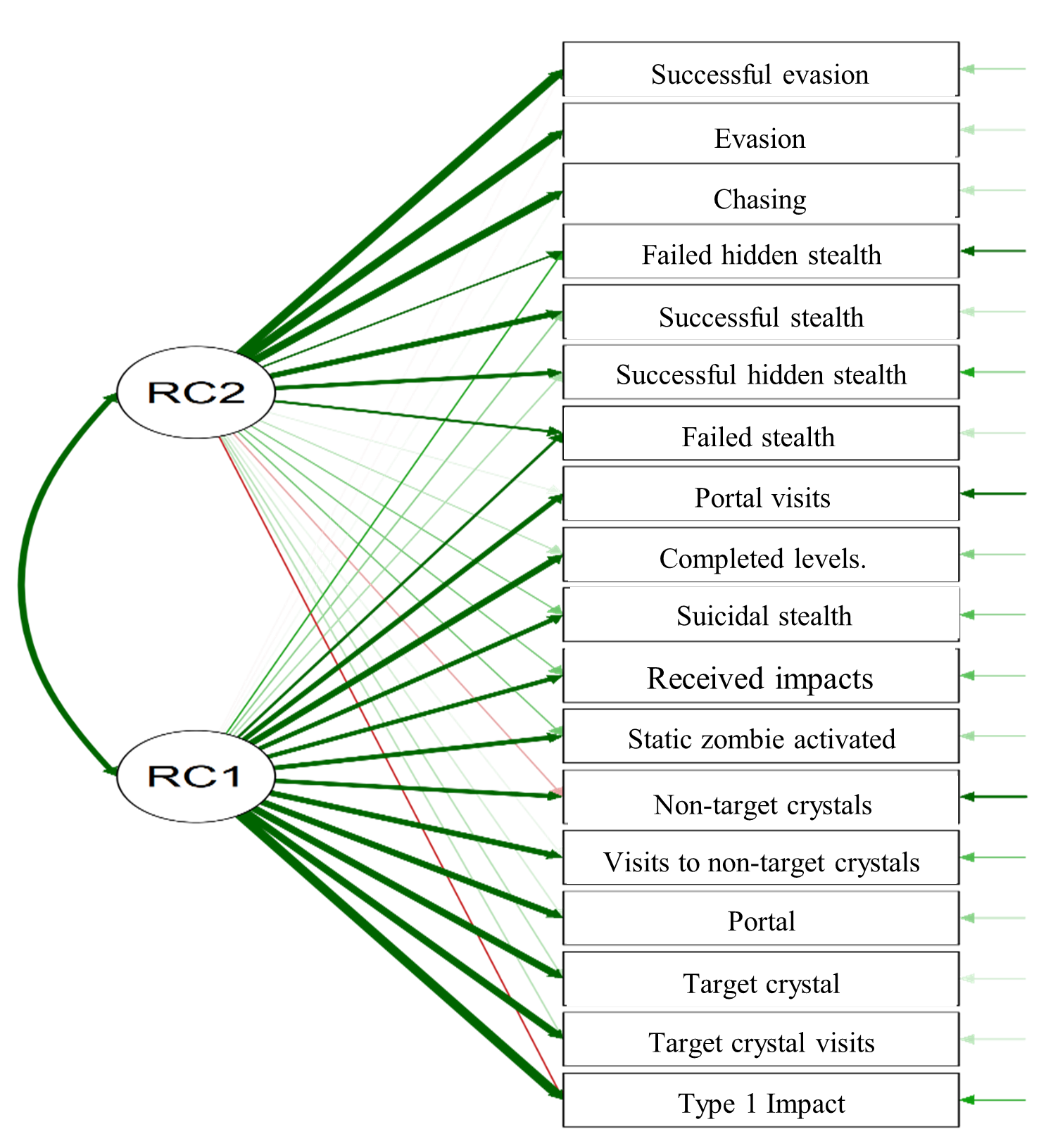Serious game for cognitive assessment. Validation of a psychometric embedded test
DOI:
https://doi.org/10.17083/ijsg.v11i3.667Keywords:
Serious Game Design, Video Games, Cognitive assessment, executive functions, psychometrics, Exploratory factor analysisAbstract
The evaluation of performance in serious video games is crucial when it comes to providing empirical evidence of the effectiveness of this type of educational tools. In turn, the design of psychometric tests demands specific procedures aimed at estimating validity levels. This paper presents the validation process of a psychometric test embedded in a video game, for the assessment of executive functions, understood as a set of cognitive processes associated with the functioning of the frontal lobes, including planning, inhibition, flexibility and monitoring. The sample consisted of 171 participants aged between 5 and 12 years (Mean=8.27; SD=1.589), students at elementary school. The analyses performed included Cronbach's Alpha and McDonald's Omega internal consistency indexes and an Exploratory Factor Analysis. The results indicate good levels of reliability and excellent fit indices for a two-factor model
Downloads
Published
2024-08-31 — Updated on 2025-03-13
Versions
- 2025-03-13 (2)
- 2024-08-31 (1)
Issue
Section
Articles
License
Copyright (c) 2024 Jorge Quimbaya, Alejandra Herrera, Cesar Mejia

This work is licensed under a Creative Commons Attribution-NonCommercial-NoDerivatives 4.0 International License.
IJSG copyright information is provided here.
How to Cite
Serious game for cognitive assessment. Validation of a psychometric embedded test. (2025). International Journal of Serious Games, 11(3), 3-18. https://doi.org/10.17083/ijsg.v11i3.667 (Original work published 2024)